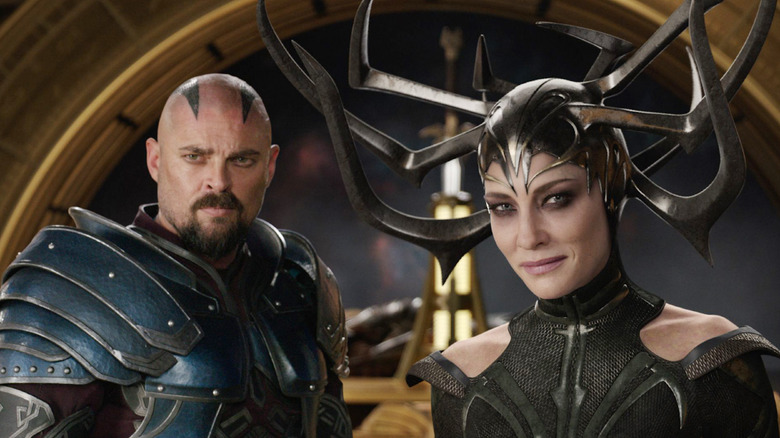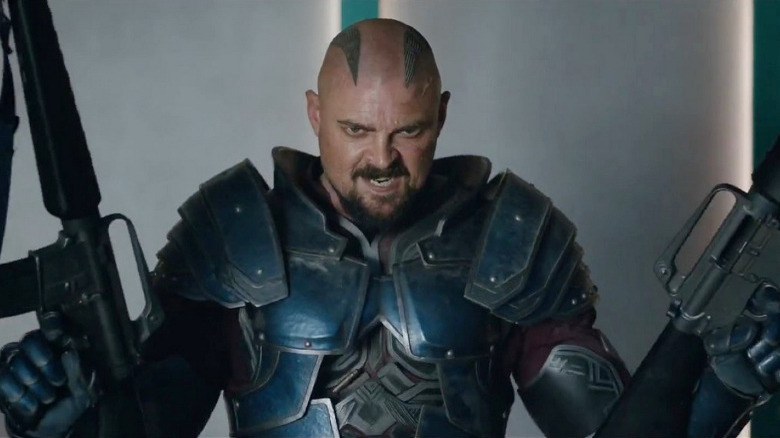Thor: Ragnarok Cut A Heart-Wrenching Karl Urban Scene
As a director, Taika Waititi is capable of handling major shifts in tone, switching gears from irreverent to tragic or silly to serious in the blink of an eye (when he's on his A-game, at least). His fondness for balancing darkness with light has made some of his movies polarizing, whereas others have enjoyed almost universal praise. Among the examples of the latter is "Thor: Ragnarok," the 2017 film that turned the quirky Kiwi funnyman into a household name.
Just about every story thread in "Ragnarok" mixes hilarity with sadness. There's Thor and Loki, whose ongoing squabbles are both very funny yet tragic in the face of their shared personal losses. There's Valkyrie, whose heavy drinking is played for laughs until the film reveals it's a coping mechanism for her PTSD. Even Karl Urban's Asgardian warrior Skurge, who starts off delivering a rib-tickling speech about the stuff he's collected acting as guardian of the Bifröst Bridge, evolves into more than just a one-note comic relief player over the course of the movie.
After his light-hearted introduction, Skurge spends most of "Ragnarok" serving Hela, the Goddess of Death. The more pain and misery Hela inflicts upon the people of Asgard, the more the movie lingers on Skurge's reactions as he finds his instinct for self-preservation clashing with his urge to do the right thing and help someone other than himself. However, a deleted scene went even further in showing just how much Skurge's actions literally sicken him.
'He's actually being physically sick by what he's done'
The turning point for Skurge comes in the movie's second half. When the people of Asgard refuse to tell Hela who's stolen the Bifrost Sword, she orders Skurge to execute a random young woman from the crowd. He's in the middle of swinging his axe, too, before another bystander stops him and reveals what they want to know. In a video for GQ, Karl Urban talked about the scene that initially came after that:
"... And then post that scene, there's a scene which didn't make the final cut, is he is absolutely sickened to the core. We find him in some corner. And he's actually being physically sick by what he's done. And that was really sort of the genesis for this turn that he takes, and the guilt that he feels about what he's done, and how he's going to, at the right point in time, make it right. And that's always fun when you have a character that you can take him in one direction, and then have a pivot. I always, if I can find the opportunity to do that, I will."
It's possible this scene was deemed a little too real and visceral, even for a film about the horrors of colonialism. Still, for all it does well, "Thor: Ragnarok" might have stood to benefit from a moment like this, allowing Urban to really flex his acting muscles and better selling Skurge's turn from selfishness to selflessness in the movie's climax. Even without it, though, his arc mostly sticks the landing, culminating in Skurge using his guns "Des" and "Troy" ('cause together, they ... y'know) to save the day — a deed that's almost equally riotous and moving, like the best of Taika Waititi's work.

